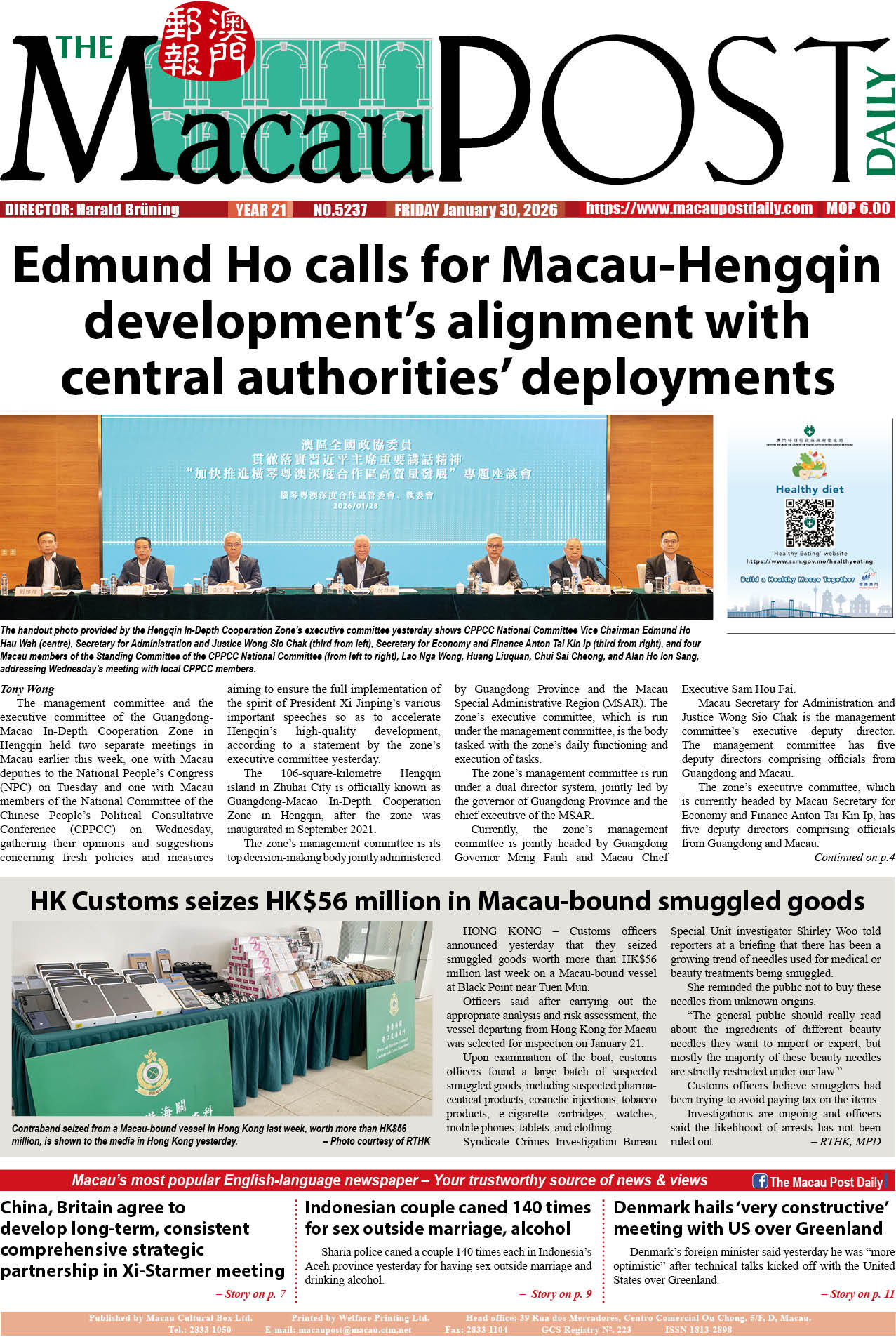Commentary by Christopher Chu and Maggie Hoi
When we embarked on our journey to write stories about Macau, we wanted to use a local publisher. It seemed intuitive that those best positioned to support our book would be those that live and breathe the city. However, after a few cold-calls and numerous emails, our proposal to compile a storybook about Macau’s renowned landmarks received lukewarm enthusiasm. Some likened it to a mere travel guide, while others questioned how we could compete with freely available tourist brochures. Prior to altering our approach and seeking an overseas printer, we successfully arranged a meeting with a publisher situated just beneath the picturesque Guia Hill.
This anecdotal side experience appeared inconsequential in our literary journey until we attended The Script Road, Macau’s Literary Festival, last week. During the event, moderators enquired about each author’s publisher, revealing that no two answers were alike. What was revealed was the common thread that no author worked with the publisher they initially approached.
We shared a similar story, believing our difficulty stemmed from fewer in-person gatherings amid the coronavirus pandemic. Before meeting Cyan Cheong and Sam Ip of The Macanese Publishing, we had our temperature taken upon entering their office building and maintained social distancing inside their office. Wearing N95 masks, we pitched what later became “Macau’s Historical Witnesses,” a storybook explaining Macau’s history from the purview of the landmarks.
From behind their own masks, Cyan and Sam were not listening as a publisher, but as customers. When we shared the chapter about St. Joseph’s Seminary and Church, we did not repeat dates, but illustrated the complexity among the missionaries, the Portuguese, and the Chinese, amid a fractious eighteenth-century backdrop. Through their office window, we gestured towards Guia Fort nestled beneath the iconic lighthouse, recounting the Battle of Macau in 1622 and how that event shaped the future identity of the city.
Rather than discussing business, Cyan and Sam evoked stories from their own childhoods growing up in Macau. They reluctantly admitted not knowing much about the famed UNESCO heritage sites that populate the city, appreciating how we attempted to explain history in digestible pieces from a unique viewpoint. At the meeting’s conclusion, we did not shake hands. Instead, we touched elbows, as advised under the health protocol of the time, signalling that we found our publisher.
“Macau’s Historical Witnesses” was launched as travel restrictions were still in place last year. We wore masks at the Tap Seac Book Fair, staring into an audience that was also covered up. Though few tourists were present, chairs were filled with librarians, teachers, and parents, enquiring about the research process, and pressing how this work could help facilitate teaching English to local Chinese students. The engagement exceeded our expectations but reflected that the local publisher knew the market, since they are part of the reading community supporting literature like ours.
However, drawbacks should be noted. Like any young organization, the business lacks a long track record, with Cyan founding her company back in 2016. Their international footprint is indicative of their recent establishment, not yet present beyond the Greater China area. This creates potential limitations for an English book living in a city where Portuguese and Chinese are the official languages. Rather than reaching potential overseas customers, we wait for them to arrive in Macau. While this may not appear to be a significant undertaking, books about Macau have found an enthusiastic audience in Portugal.
At Script Road, we shared a panel with Andrew Pearson, author of “The Dead Chip Syndicate,” printed by American publisher Brother Mockingbird. Noting the success of “Squid Game” and “Crazy Rich Asians,” Pearsons sees a window for good Asian stories to draw a wider audience, benefiting a city like Macau which is endowed with a wealth of interest. But as the readers head east, Macau publishers are connecting stories with the west.
Macanese Publishing recently collaborated with 10 Fantasia to exhibit local writers and artists, including a feminist-themed book exhibition that bridges gender issues across generations and borders. They are also helping with our upcoming release of “Camilo Pessanha’s Macau Stories,” describing how the city evolved from the perspective of the early twentieth-century Portuguese poet.
Our experience with our publisher is by no means common. As most writers admit, luck plays an important factor in the entire process. But when it came to writing Macau stories in English, Cyan and Sam of Macanese Publishing demonstrated an intimate understanding of the local landscape, aligning our work with those that can value it most. For those pursuing to write any Macau stories, a local publisher may not be the initial choice, but it does warrant strong consideration – no one knows this city better than those that live here.

Kevin Maher (from left to right), Andrew Pearson, Christopher Chu and Maggie Hoi attend the Macau Literary Festival panel on “Writing Macau in English: Navigating Through Language and Cultural Diversity”, at Casa Garden last Saturday. – Photo: Sam Ip






